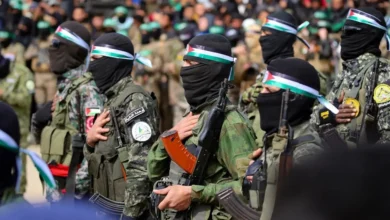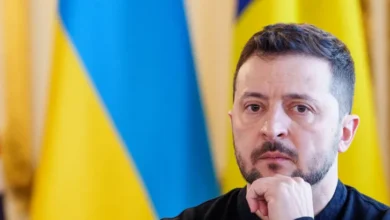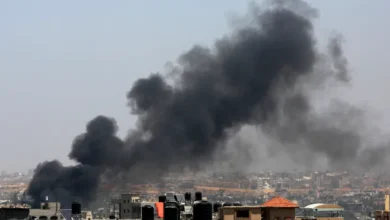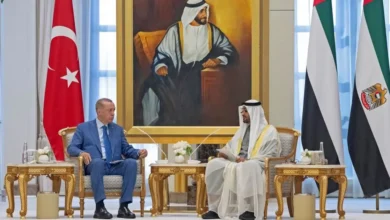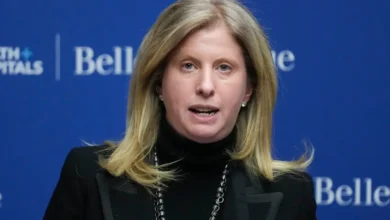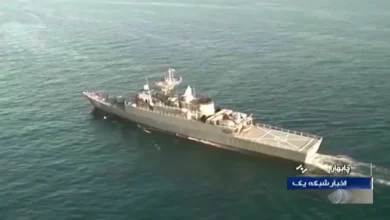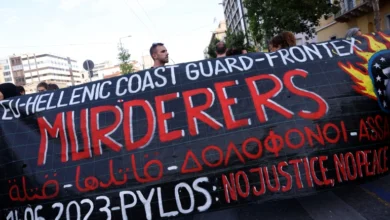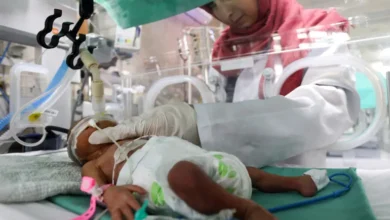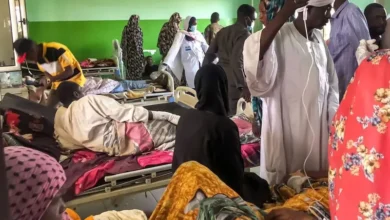Palestinian president in Lebanon to discuss disarmament of refugee camps
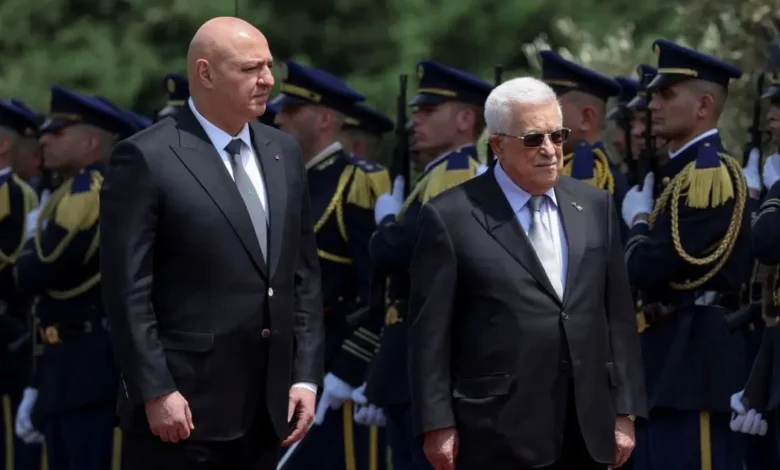
Palestinian President Mahmoud Abbas was in Beirut on Wednesday for talks expected to include the disarmament of Palestinian refugee camps as Lebanon seeks to impose its authority on all its territory.
It is Abbas’ first visit since 2017 to Lebanon, which hosts hundreds of thousands of Palestinian refugees, 222,000 of them in overcrowded camps beyond the control of the Lebanese authorities.
State media images showed Abbas arriving at the presidential palace and meeting President Joseph Aoun.
“The issue of Palestinian weapons in the camps will be one of the topics on the agenda for discussion between President Abbas, the Lebanese president and the Lebanese government,” said Ahmad Majdalani, a member of the Palestine Liberation Organization’s executive committee accompanying Abbas.
A Lebanese government source, who requested anonymity because they were not allowed to brief the media, said Abbas’ visit aims to establish a mechanism for removing weapons from the camps.
Aoun and Abbas reaffirmed their commitment to limiting the possession of weapons to the Lebanese state and agreed on preventing Palestinian camps from becoming “safe havens for extremist groups,” according to a statement from the Lebanese presidency.
The Palestinian side also pledged not to use Lebanese territory as a base for launching any military operations, the statement added.
By longstanding convention, the Lebanese army stays out of the Palestinian camps – where Abbas’ Fatah movement, militant group Hamas and other armed groups are present – and leaves the factions to handle security.
Hamas has carried out several attacks on Israel from Lebanon during the war sparked by its October 2023 attack on Israel from Gaza.
In an interview with Egyptian channel ON TV on Sunday, Aoun said “the monopoly of weapons should be in the hands of the state.”
The Lebanese army has dismantled six Palestinian military training camps, Aoun said, “three in the Bekaa, one south of Beirut and two in the north,” and “seized the weapons and destroyed all the facilities.”
The army has also been dismantling militant group Hezbollah’s infrastructure in the south under the terms of a November ceasefire with Israel that sought to halt more than a year of hostilities, including two months of full-blown war.
Majdalani said Abbas’ visit came as Lebanon entered “a new era” in which it is receiving “Arab and American support.”
“What matters to us in this new regional context is that we do not become part of Lebanon’s internal conflicts, and that the Palestinian cause is not exploited to serve any party,” he added.
The head of Hamas’ national relations department in Lebanon, Ali Barakeh, said he hoped Abbas’ talks with the Lebanese government would “take a comprehensive approach that does not only focus on the issue of weapons or the security aspect.”
“We affirm our respect for Lebanon’s sovereignty, security and stability, and at the same time we demand the provision of civil and human rights for our Palestinian people in Lebanon,” he said.
According to the UN agency for Palestinian refugees, UNRWA, 500,000 Palestinians are registered as refugees in Lebanon, most of them descendants of those who fled or were expelled from their land during the creation of Israel in 1948.
Due to their refugee status, most are unable to work legally in Lebanon, an issue Majdalani said Abbas would also address during the meeting.
